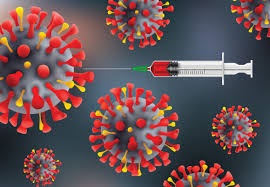Statement on the variants of COVID-19 virus found in the United Kingdom and South Africa
The Voice of Canada News:
The Government of Canada is aware that the United Kingdom (UK) is investigating a new SARS-CoV-2 variant, which has been identified in cases in areas where there is also a high incidence of COVID-19. We are also aware that another variant of the SARS-CoV-2 virus has been detected in South Africa, and that this variant shares one of the same mutations found in the variant identified in the UK.
Canada’s response to the COVID-19 pandemic is guided by the latest science and research. The Government of Canada is closely monitoring the genetic variants of the virus that causes COVID-19 identified in the UK, South Africa and elsewhere, and is working with international partners, including the World Health Organization, to better understand these variants and their impacts.
Given the high number of cases of the new variant, the Government of Canada suspended entry into Canada of all commercial and private passenger flights from the United Kingdom for 72 hours, effective midnight December 20, 2020. On December 23, the Government of Canada extended this prohibition until January 6, 2021, at 11:59 p.m. EST. These restrictions do not apply to cargo flights, technical stops where passengers do not disembark, action related to the safety of the plane, or where special authorization has been granted by Transport Canada.
All travellers who have been in the United Kingdom or South Africa within the period of 14 days before the day on which they seek entry into Canada will be subject to secondary screening and enhanced measures, including increased scrutiny of quarantine plans.
In addition, the Public Health Agency of Canada updated its Travel Health Notice to advise extra caution to Canadians if they must travel to the United Kingdom or South Africa. The Government of Canada continues to advise against all non-essential travel outside of Canada, including all cruise ship travel, until further notice.
Genetic variations of viruses such as the one that causes COVID-19 are not uncommon and many other variants of the SARS-CoV-2 virus have been previously observed around the world this year. Both new variants include mutations (i.e., changes to the genetic material in the virus) on the “spike” protein, which may result in the virus becoming more infectious and spreading more easily between people. While early data suggest that these new variants may be more transmissible, to date there is no evidence that these variants cause more severe disease symptoms or have any impact on antibody response. More research is required to confirm these findings.
The Public Health Agency of Canada’s National Microbiology Laboratory (NML) is conducting an analysis of Canadian cases of COVID-19 to determine if these variants have been previously observed in Canada. No cases with this variant have been identified in Canada to date, based on the analysis of over 25,000 virus samples. The NML continues to collaborate with international partners in monitoring the emergence of variants around the world.
At this time, there is no evidence that these variants might affect vaccine efficacy. The Pfizer/BioNTech and Moderna vaccines recently authorized for use in Canada have been tested against a number of other viral variants, without impact on efficacy. Health Canada will monitor the emerging variants closely and work with manufacturers and international regulators to assess the impact of the new variants on vaccine efficacy.
There is no evidence at this time that these variants affect the ability of Health Canada authorized diagnostic tests to confirm COVID-19 cases. However, given the limited data on the new variants, more research is needed in Canada and around the world. Health Canada is working with other regulators and manufacturers of COVID-19 test devices to determine what, if any, impact these variants may have on the effectiveness of diagnostic tests. If an issue is identified, Health Canada will work quickly with the manufacturers and public health laboratories to mitigate those risks.
The Canadian and global medical, public health and research communities are actively evaluating these mutations to better understand the potential implications in terms of transmission, symptoms of illness and vaccine development.
The Government of Canada will continue to do what is necessary to protect the health of Canadians. Additional measures will allow public health officials time to gather further evidence and help reduce the spread of the virus that causes COVID-19.









